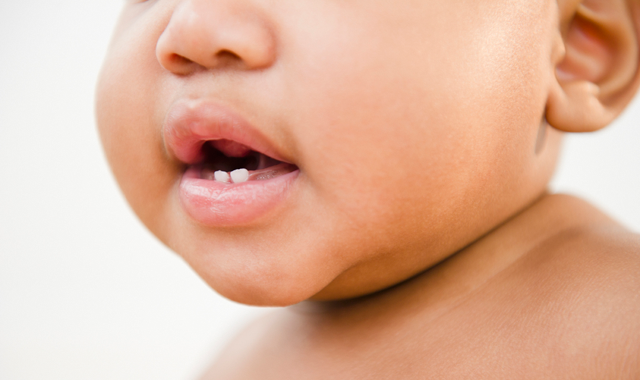Can long-term breastfeeding lead to dental caries?
Breastfeeding has been shown to have numerous health benefits for babies. Breastmilk has an ideal mix of vitamins, protein and fat, and breastfeeding can protect babies against a variety of diseases and medical conditions, including diabetes, leukemia, respiratory tract infection, and childhood overweight and obesity, among others.

Breastfeeding has been shown to have numerous health benefits for babies. Breastmilk has an ideal mix of vitamins, protein and fat, and breastfeeding can protect babies against a variety of diseases and medical conditions, including diabetes, leukemia, respiratory tract infection, and childhood overweight and obesity, among others.
But what does breastfeeding mean in regards to oral health? According to a new study published in the journal Pediatrics, prolonged breastfeeding may increase the risk of dental caries.
In the study, researchers analyzed breastfeeding behaviors and sugar consumption for 1,129 children in southern Brazil. The average number of decayed, missing and filled primary teeth and severe early childhood caries were investigated at age 5. Breastfeeding was the main exposure collected at birth and at 3, 12 and 24 months of age. Data on sugar consumption were collected at 24, 48 and 60 months of age.
Related reading: Is periodontitis causing infertility in young women?
The researchers discovered that children who were breastfed for 24 months or longer were 2.4 times more likely to have severe cavities than children who were breastfed up to 12 months of age. They determined that breastfeeding between 12 and 23 months had no effect on dental caries. About one quarter of the children examined had been breastfed for 24 months or longer.
When asked about the results of this study, Dr. Ruchi Sahota, spokesperson for the American Dental Association, questioned whether breastfeeding directly impacted the children and caused cavities or if other factors were at play, such as the children’s oral health habits, the amount of biofilm in their mouth, or if the mothers were breastfeeding at night.
“I think the takeaway message is breastfeeding doesn’t cause cavities, it’s a lack of prevention that causes cavities,” says Dr. Sahota, who is a family dentist in Fremont, Calif. “There are more factors that are important to look at once the child gets to be 24 months. You need to make sure they’re brushing their teeth twice a day, flossing their teeth, going to the dentist and having a good nutritional diet.”
Dr. Sahota notes a separate study done in June 2012 that showed prolonged breastfeeding was not a risk factor for early childhood caries after adjustment for a handful of confounders, such as age, sucrose consumption between main meals and the quality of oral hygiene. She says that breastfed babies are typically also not bottle-fed as much, which decreases the risk of baby bottle tooth decay.
In the recent study, the researchers concluded that preventive intervention for dental caries should be established as early as possible, and that mechanisms underlying this process should be investigated further. Dr. Sahota echoes this sentiment.
“We’re a family dental practice, so when I see a pregnant mom, I ‘catch her’ during that pregnancy and start to talk to her about not only why going to the dentist while pregnant is important, but I also start to talk to her about prevention and what she needs to do when the baby comes,” Dr. Sahota says. “That speaks volumes and usually translates into a baby and toddler who is brushing and who is getting their teeth brushed because mom has those tools.”
The full study, "Impact of Prolonged Breastfeeding on Dental Caries: A Population-Based Birth Cohort Study," was published in Pediatrics.
Floss & Flip Flops Episode 22: National Dental Hygiene Month
October 1st 2023Join the Sanders Sisters and Dr Anna Kay Thompson as they learn about the burning questions the medical community is not asking about oral health. Learn about all of the ways they are celebrating the good work of dental hygienists in their quest for whole-body health.